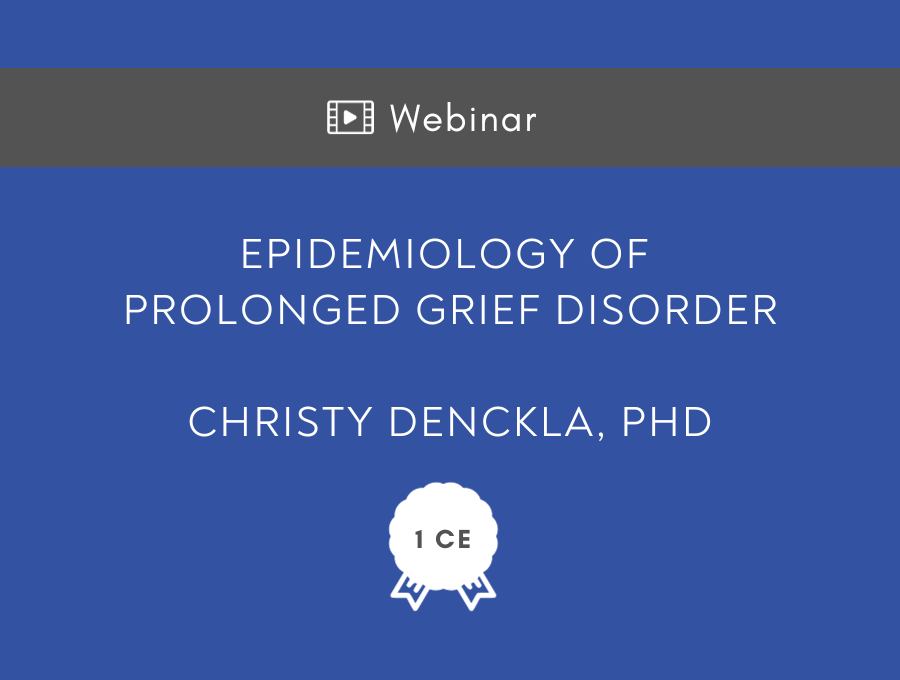
Epidemiology of Prolonged Grief Disorder – 1 CE Hour
About Course
Prolonged Grief Disorder (PGD) is now included in the DSM-5-TR and the ICD-11, making it possible to expand the knowledge base of its basic epidemiology to global populations. This presentation will describe the social determinants, occurrence, and distribution of PGD based on what we know so far. It will also discuss the prevalence of bereavement and its relationship with disadvantage, highlighting a social justice perspective.Description
Prolonged Grief Disorder (PGD) is now included in the DSM-5-TR and the ICD-11, making it possible to expand the knowledge base of its basic epidemiology to global populations. This presentation will describe the social determinants, occurrence, and distribution of PGD based on what we know so far. It will also discuss the prevalence of bereavement and its relationship with disadvantage, highlighting a social justice perspective.
This webinar was recorded on November 10, 2023.
Learning Objectives
- Identify two key social determinants of PGD
- Describe the prevalence of PGD
- Describe the association between bereavement, disadvantage, and social justice
Presenter
Dr. Christy A. Denckla is an Assistant Professor at the Harvard T.H. Chan School of Public Health, an Associate Member at the Stanley Center for Psychiatric Research at the Broad Institute of MIT and Harvard, and an Assistant Professor of Psychology at Harvard Medical School. Her research aims to understand the impact of adversity and bereavement on psychological functioning and well-being, as well as the mechanisms that appear to drive adaptation. Dr. Denckla’s work on bereavement is funded by an early career K23 grant from the National Institute of Mental Health. She completed her postdoctoral fellowship in Psychiatric Epidemiology at the Harvard T.H. Chan School of Public Health, and her clinical internship at Massachusetts General Hospital, Harvard Medical School. Her doctoral research was completed at Adelphi University in New York.
Continuing Education
American Psychological Association
The Center for Prolonged Grief at Columbia School of Social Work is approved by the American Psychological Association to sponsor continuing education for psychologists. The Center for Prolonged Grief maintains responsibility for this program and its content.
Note: Many state boards recognize the APA approval. Please check with your state licensing board.
New York State Education Department
- NYSED State Board for Psychology recognizes the Center for Prolonged Grief as an approved provider of continuing education for licensed psychologists (#PSY-0150).
- NYSED Board for Social Work recognizes the Center for Prolonged as an approved provider of continuing education for licensed social workers (#SW‐0727).
- NYSED State Board for Mental Health Practitioners recognizes the Center for Prolonged Grief as an approved provider of continuing education for licensed mental health counselors (#MHC-0104) and licensed marriage and family therapists (#MFT-0080).
Note: Non-NYS social workers, mental health counselors, marriage and family therapists, and other professionals, please check with your state licensing board. Many states have recognized our continuing education programs as we are at a CSWE-accredited institution and part of a regionally accredited university.
Course Content
Epidemiology of Prolonged Grief Disorder
-
Watch the webinar
00:00 -
Take the post-test
-
Post-webinar evaluation
00:00
About the instructors
4 Courses
22 students
22 Courses
0 students